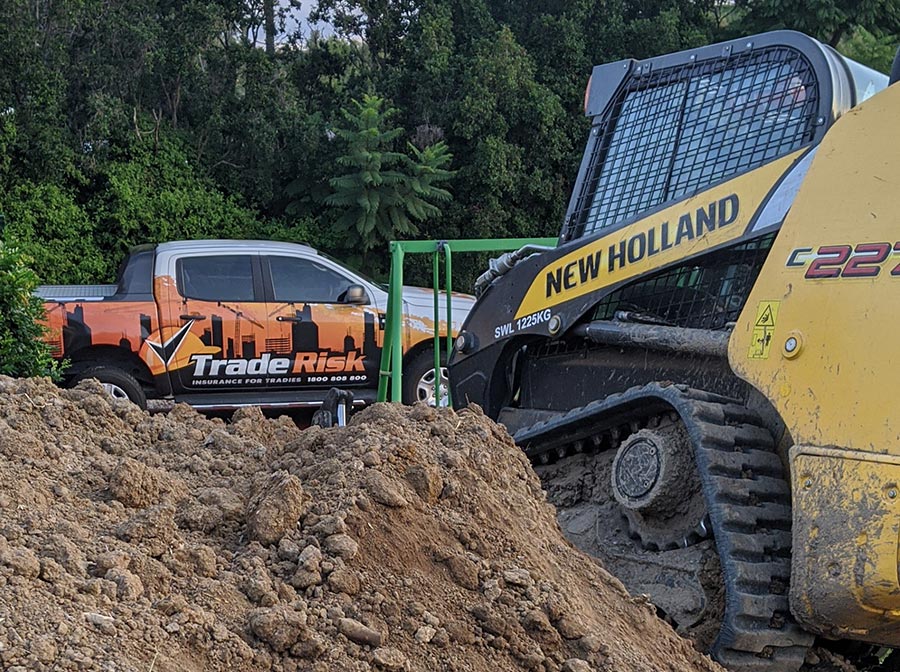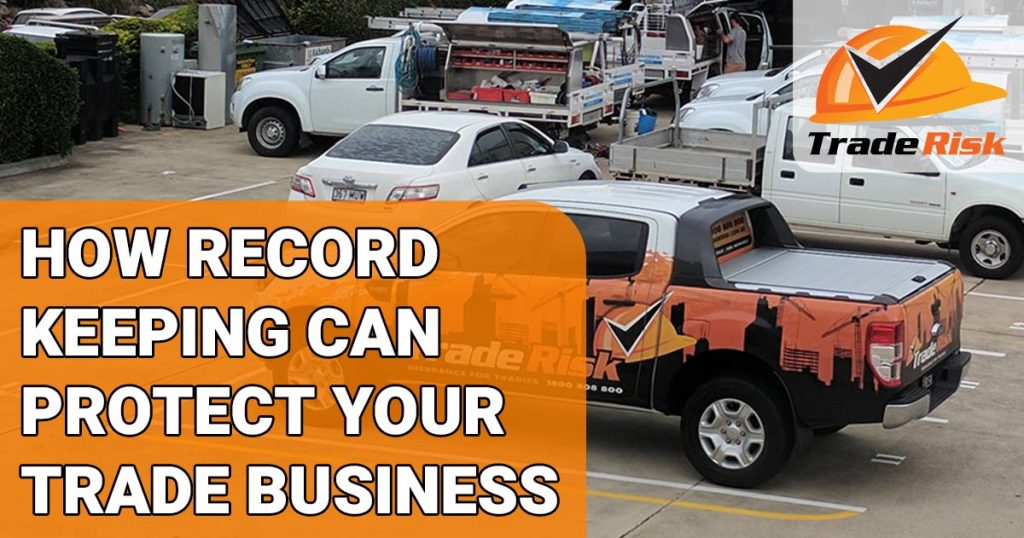Paperwork can be one of the least enjoyable aspects of running a trades business.
But you know what’s worse than paperwork? It’s dealing with a dispute or a public liability insurance claim, and still having to do all the paperwork anyway!
Even if you’re in the vast majority of tradies and builders who do the right thing and produce quality work, it doesn’t always stop a client from trying to lodge a claim or make a complaint against you.
So aside from doing your own quality checking and ensuring that your work is of a high standard, how else can you protect yourself from disputes? Especially those which could end up as a public liability claim?
The answer is good record keeping. We’re not just talking about your standard contracts, but various forms of record keeping and evidence that will help to prove your side of the story.
Here are a few good ideas that we’ve seen over the years, that could potentially be implemented in any trades or building business.
Taking Photos
We see plenty of builders and tradies taking photos of their finished work to share on social platforms such as Instagram.
As well as being great for marketing, photos can also be a great way of protecting yourself in the event of a dispute.
Whilst it may be a pain to take before, during and after photos of each job, it’s a very effective way of recording evidence and settling disputes.
There was a recent insurance claim where an electrician scratched a glass splashback in a kitchen whilst installing a new rangehood.
In this case the electrician knew he caused the damage and was happy to lodge a claim via his insurance broker. Whilst his insurance covered the cost of replacing the splashback, he still had to pay a $500 excess, which is still better than having to cover the full cost of course.
But what if the electrician didn’t believe he caused the damage? Without any evidence it would be his word against the homeowner’s.
His insurance would still cover him, but he’d be paying a $500 excess and potentially suffer an increased premium at his next renewal.
If he’d have taken before and after photos however, it would be clear whether the scratches were caused by him or not, and it may never make it to a claim as he could prove he wasn’t responsible for the damage.
Recording Video
If you wish to take it a step further, you could consider video recording your work.
This is probably a step too far for most tradies, but it would certainly give you near irrefutable evidence that you did or did not do a particular thing.
Taking Notes
No one wants to stop halfway through their work and start writing down notes, but have you considered using your voice?
Virtually all modern smartphones will have a voice recorder app that is preinstalled and easy to use.
Whilst no one wants to record a running commentary of every job, if you see something that seems noteworthy, you could grab your phone and record a quick note.
Should a dispute or issue of some sort arise in the future, your voice note recorded on the spot could prove to be pivotal.
We recently had building and landscaping work done at our house, and the builder would walk around the site talking into his phone making notes about the work and his observations.
He might never need to refer to those notes, but if he did need to try and recall a small detail from weeks, months or even years ago, he could always refer back to those notes.
There are services available now that can transcribe your speech notes to text, which could make searching them at a later date much easier.
You might feel a little odd at first walking about talking into your phone, but those recordings or notes could be invaluable in the event of a dispute or claim.
Scope of Works
For larger jobs it’s a given that a detailed scope of works will be in place. But what about those smaller maintenance jobs?
By having a written document in place that clearly outlines to both you and the client what is being done, you’ll can help to avoid potential issues down the track.
Maybe you’re a plumber going out to replace a leaking tap. A fully detailed scope of works would seem overkill, but a quick single-page document could prove invaluable if something was to go wrong.
If something does go wrong which results in a claim on your business insurance, the insurer will often ask for a scope of works as part of the claim anyway.
Whether it’s a printed and signed document or just an email trail between you and the client, any type of written evidence is going to be better than none.
Contracts
Having a building contract in place is obviously required in many cases. We’re not experts in that department and won’t be going into it.
Suffice to say though, if you’re doing work that requires a contract, make sure you have a signed contract before undertaking any work.
Claim Process
If you do have a client who makes a complaint that could lead to a claim it’s always best to bring your insurance broker into the picture as soon as possible.
Even if you don’t believe it’s your fault or that you’ve done anything wrong, getting the insurance company involved earlier will typically lead to better outcomes.
Your insurance isn’t just there to protect you when you’re in the wrong. It’s also there to defend you when you’re accused of being on the wrong.
A public liability policy includes cover for defence costs, meaning that the insurer will pay for legal representation to defend you.
So don’t want until you’ve argued it out with your client or whoever is making the complaint against you. Get your insurance broker and insurance company involved, as we’re all on your side!
Whatever evidence you’ve collected along the way will be hugely beneficial as the claim progresses.
Bonus Section – Tool Insurance
This article has been all about protecting your trade business in the event of public liability insurance claims.
Those are claims involving property damage or personal injury caused by you (or your business) and suffered by a third party.
But we should also touch on the importance of record keeping when it comes to another popular form of tradies insurance – tool insurance.
If you’re insuring your tools, it’s imperative that you keep a record of those tools so you’re prepared for a claim.
Typically you’ll need the following details regarding the tools:
- A list detailing each item
- The replacement value of each item
- Serial numbers where applicable
- Tax invoices or other evidence of ownership
It won’t be good enough to just tell your broker or insurance company that you had $5k worth of tools stolen and expect to be paid that amount. You need to provide evidence of ownership.
So if you want to make sure a tool insurance claim will run smoothly, good record keeping is going to help you here too.
Other Ideas
Do you have any other ideas or methods for protecting yourself and your trades business from potential disputes and claims?
Of course having the right insurance backed by a great insurance broker is vital, but anything else you can do along the way can only help.
If you have any tips to share please get in touch.






